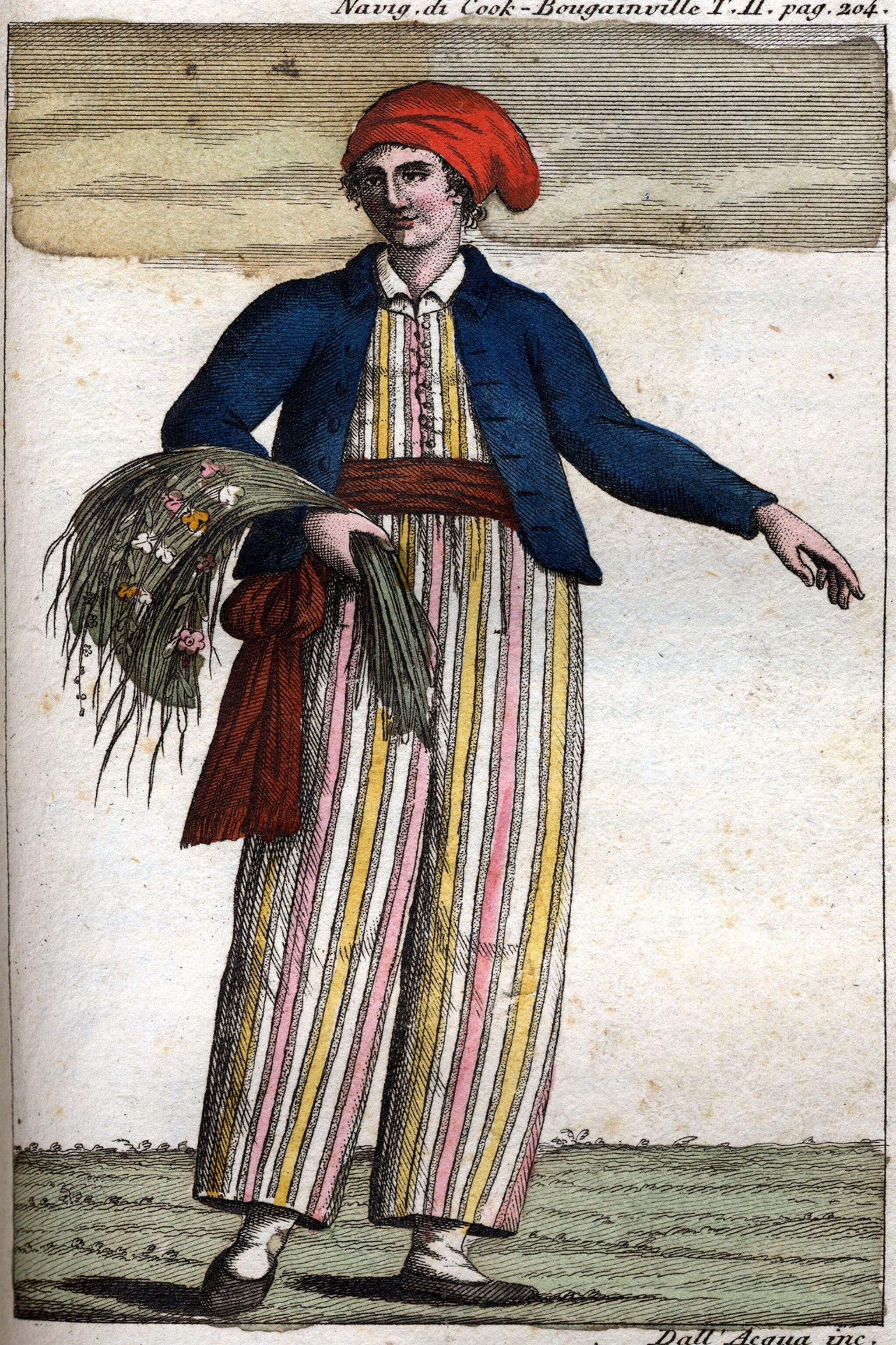Baret, Jeanne << bah RAY, zhahn >> (1740-1807), was a French scientist who became the first woman to circumnavigate (sail all the way around) the world. Baret’s work as a botanist (scientist who studies plants) won her rare official recognition at a time when most scientists were men.

Baret was born into extreme poverty on July 27, 1740, in La Comelle, in east-central France. Her countrywoman’s knowledge of medicines made from plants brought her to the attention of Philibert Commerson. Commerson, a leading botanist, lived near La Comelle. By the autumn of 1764, Baret and Commerson had moved to Paris, where Baret helped Commerson with his scientific work.
In the 1760’s, French government ministers started planning a French expedition to circumnavigate the globe. The government hoped that the expedition would discover new lands and useful plants. Officials appointed Commerson as botanist for the expedition and instructed him to hire an assistant. Baret would have made the ideal assistant, but a French law prohibited women’s presence on French naval ships. Commerson and Baret decided to disguise Baret as a man.
The expedition’s two ships sailed west from Rochefort, France, in December 1766. The ships sailed down the east coast of South America. They then passed through the Strait of Magellan and on to Tahiti. The expedition commander wrote in his log that Baret had revealed her true identity when the ships landed on Tahiti. From Tahiti, the expedition sailed around New Guinea and through the Spice Islands (the Moluccas) of Indonesia.
Baret and Commerson went ashore on the island of Mauritius in the Indian Ocean in November 1768. They planned to work developing new crops in the French botanical gardens there. The rest of the expedition continued west, returning to France in 1769. While based on Mauritius, Baret and Commerson became the first European botanists to explore the island of Madagascar, about 500 miles (800 kilometers) to the west. In 1773, Commerson died from a fever on Mauritius, leaving Baret penniless. Baret finally caught a ship and arrived back in France in 1774 or 1775.
Baret had helped collect more than 6,000 specimens of insects, minerals, and plants, many of which were new to scientists. In 1785, the French government awarded Baret an annual pension in the same amount as male scientists received. She was the first Frenchwoman to receive such public acknowledgment. She was also the first Frenchwoman to receive the same pay as a man for her work. Baret died on Aug. 5, 1807, in Saint-Aulaye, in southwestern France.
